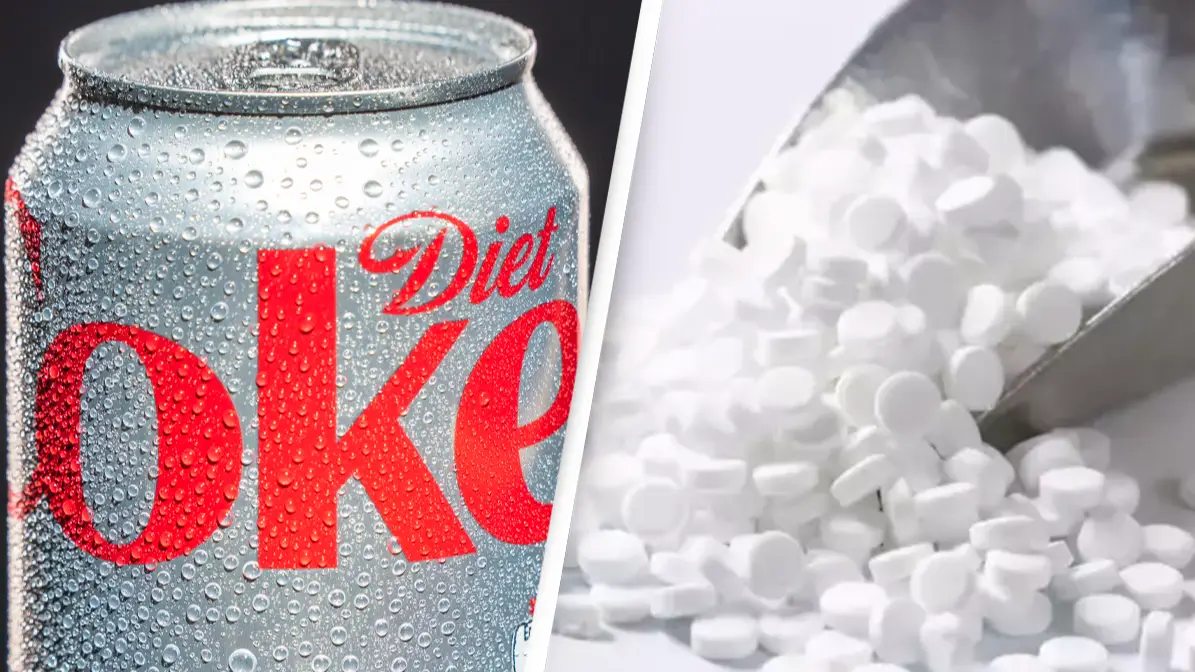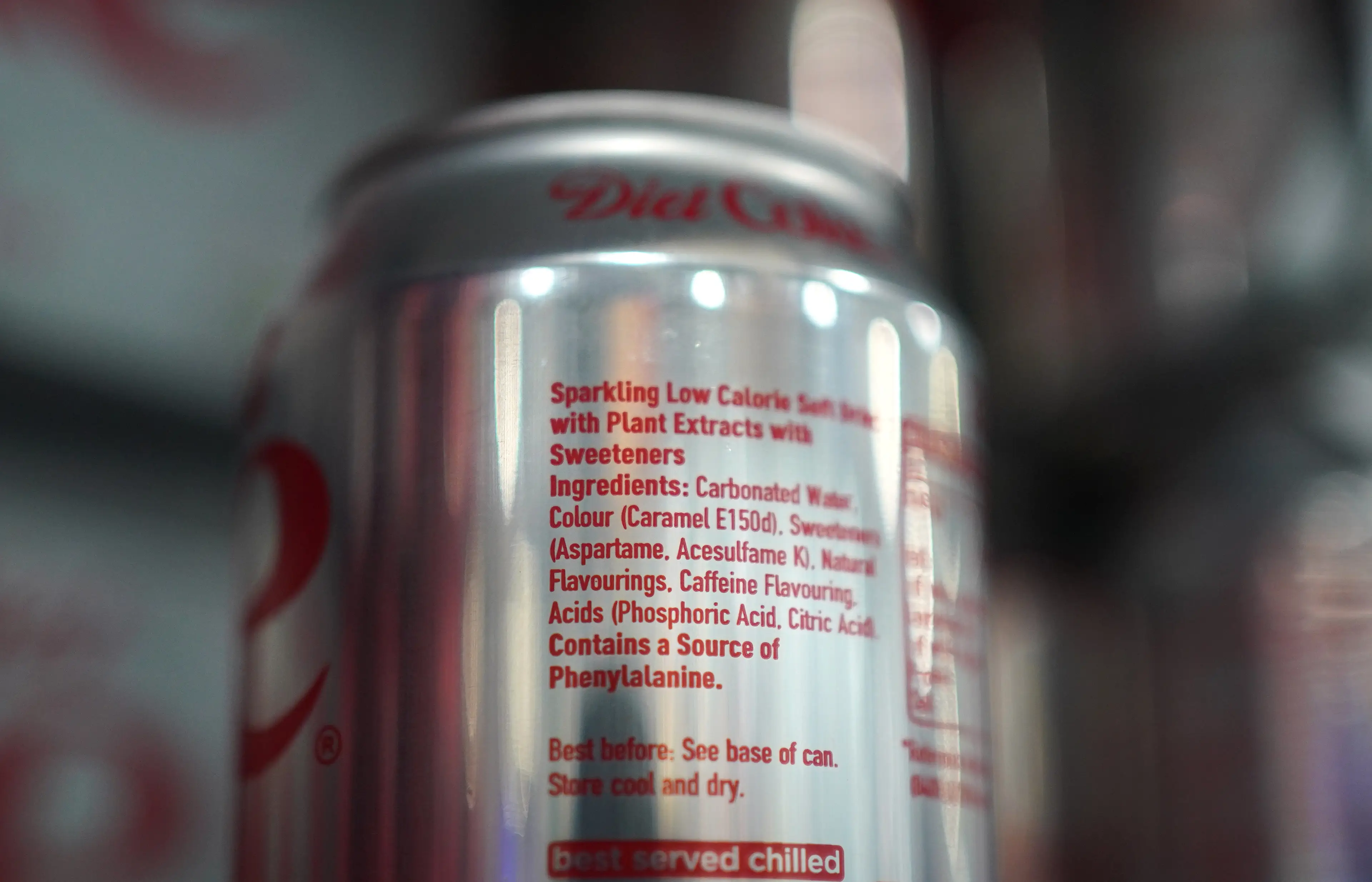
Aspartame - an artificial sweetener - is set to be declared a 'possible carcinogen' by the World Health Organization.
If you've ever had a piece of chewing gum or fizzy drinks like Diet Coke, the chances are you'll have consumed the widely-used sweetener. It has been used widely since the 1980s, and is also found in some toothpastes, dessert mixes, and sugar-free cough sweets.
But while most people tend to think it's fairly harmless, or at least not as bad as sugar, a new study claims that it could be a cause of cancer.
And now, the World Health Organisation’s (WHO) International Agency for Research on Cancer (IARC) is due to make its ruling next month.
Advert
While it hasn't confirmed what it will offer in its conclusion, sources close to the process have claimed that aspartame will be listed as 'possibly carcinogenic to humans'.
This would come below the body's two other more serious categories, 'probably carcinogenic to humans' and 'carcinogenic to humans'.

“The IARC has assessed the potential carcinogenic effect of aspartame (hazard identification)," the IARC said in a statement.
“Following this, the joint FAO/WHO Expert Committee on Food Additives (Jecfa) will update its risk assessment exercise on aspartame, including the reviewing of the acceptable daily intake and dietary exposure assessment for aspartame.”
Jecfa's food safety review of aspartame will also be published on the same day (14 July).
Frances Hunt-Wood, the secretary general of the International Sweeteners Association (ISA), said people shouldn't rush to conclusions before both reports are published.
“IARC is not a food safety body," he said. "The World Health Organisation’s Joint FAO/WHO Expert Committee on Food Additives (Jecfa) is currently conducting a comprehensive food safety review of aspartame and no conclusions can be drawn until both reports are published.
“Aspartame is one of the most thoroughly researched ingredients in history, with over 90 food safety agencies across the globe declaring it is safe, including the European Food Safety Authority, which conducted the most comprehensive safety evaluation of aspartame to date.”

Echoing Hunt-Wood's concerns, Kate Loatman, the executive director of the International Council of Beverages Associations, said the IARC was 'not the appropriate authority' to make such a declaration.
She said she hoped there would be a 'more comprehensive' review carried out by other bodies.
“While it appears the IARC is now prepared to concede that aspartame presents no more of a hazard to consumers than using aloe vera, public health authorities should be deeply concerned that this leaked opinion contradicts decades of high-quality scientific evidence and could needlessly mislead consumers into consuming more sugar rather than choosing safe no- and low-sugar options – all on the basis of low-quality studies," Loatman said.
“We remain confident in the safety of aspartame given the overwhelming weight of scientific evidence and positive safety determinations by food safety authorities in more than 90 countries around the world.
“We, therefore, welcome the broader, more comprehensive food safety review underway by the WHO and the UN Food and Agriculture Organisation Joint Expert Committee on Food Additives.”
Topics: Health, Food and Drink